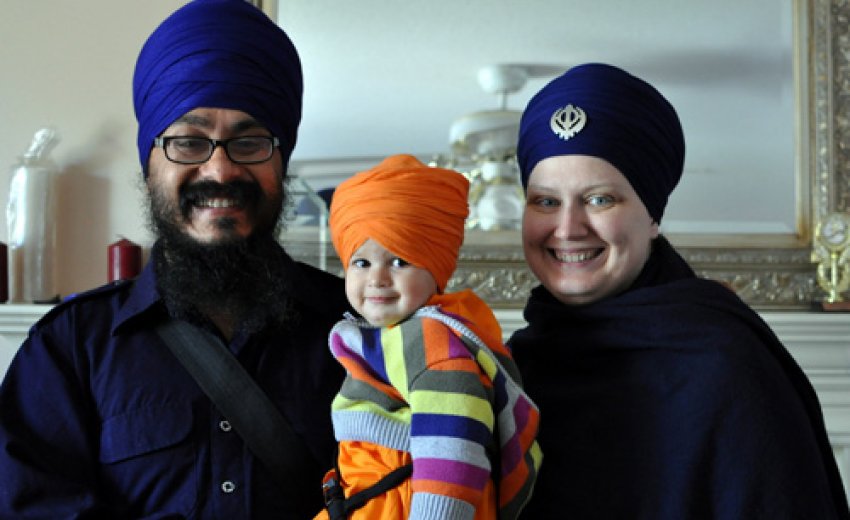
There’s no harm in doing any of these things, but our Guru just did not approve them for his Sikhs. ‘So what’s the harm in commemorating the day?’, is the usual counter-arguement of those Sikhs that accept the practice. Likewise, no other Sikh Guru subscribed to the rakhsha bandhan ceremony, it was just not a Sikh practice, be it religious or cultural. If the Guru’s life is studied closely, and compared with his hymns, one can deduce for oneself whether the Guru would say something and preach something else. If Nanak could challenge the Brahmins and reject outright the janeu, would he want to contradict himself by accepting another thread? The painting above may have been done by a devotee of the Guru and was only imagining the love between a brother and a sister, but didn’t realise that it is against the Guru’s own philosophy. When asked by his father to go forth and make a profitable bargain in business, young Nanak came back having spent all his given money on feeding starving fakirs. The Guru, who rejected the spiritual thread that the Hindu Brahmins consider makes them connected to God, in the midst of all the learned Pandits, Brahmins and his own father, would that same Guru accept the far more earthy thread called a ‘rakhi’? It’s plain logic, he wouldn’t. This is nothing more than a work of fiction. In a painting I came across on a website, Guru Nanak Dev Ji is being depicted to have a raakhi being tied on his wrist by his sister Bebe Nanaki.

Nowhere in Sikh history has any Sikh Guru known to have accepted this Hindu custom. The brother in turn acknowledges the love with a promise to be by the sisters’ side through the thick and thin and gives her a token gift.’įestivals like these are beautiful, no doubt, but in Sikhi, what we do – or do not do – is sanctioned only by the Guru.

She worships the deities, ties Rakhi to the brother(s) and wishes for their well being. Instead, manmat has only taken lead, with the explanation that it is the day dedicated to the bond of a brother and sister, and an excuse to pamper each other.Īccording to the Hindus, this is how the day is marked, ‘As per the traditions, the sister on this day prepares the pooja thali with diya, roli, chawal and rakhis. What was originally a Hindu festival has been ignorantly been accepted in Sikh culture, without prior thought to what it is all about and why our Gurus would never support it. As the festival of Raksha Bandhan approaches each year, it’s no longer strange to see Sikhs lining up to purchase these threads to tie on the wrists of their brothers and fathers, in return for blessings and gifts.


 0 kommentar(er)
0 kommentar(er)
